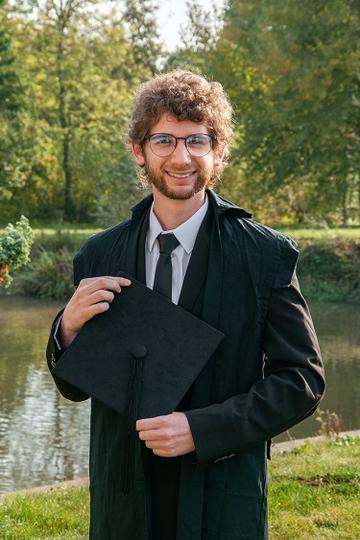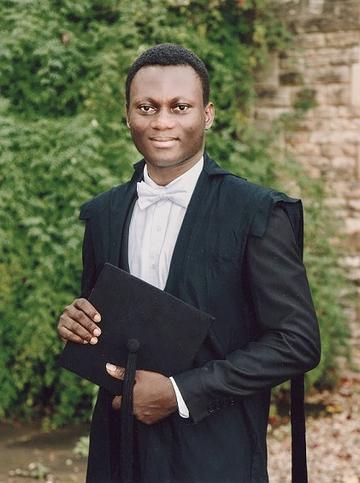MSc African Studies 2021-22 Prize Winners
Luan Staphorst - Winner of the Kirk-Greene Prize for the Best Overall Performance

"The MSc has been an experience that has both broadened my intellectual horizons and affirmed certain viewpoints. Since this was my third master’s degree, I did not feel particularly inundated by the volume of material covered in the courses; however, since my other master’s degrees were research degrees, consisting solely of 50,000+ word dissertations, the shift towards essay writing and a shorter, yet no less demanding, dissertation presented new challenges. Further, since I have not been trained in history, and I completed but a handful of anthropology courses during my undergraduate studies, working with those paradigms have been particularly enriching. Most importantly, however, is that my faith in African Studies specifically, and interdisciplinary research generally, has been affirmed through the MSc. One often feels isolated from those who regard ‘the discipline’ as ‘primary’, and this feeling is even more intense when the research object is ‘Africa(n)’. The sense of community that the MSc engenders – both amongst fellow-students and the teaching faculty – is one that I will continue to cherish".
Muhammed Alakitan - Winner of the Terence Ranger Prize for an Outstanding Dissertation

"Oxford is such a great place to study, and the centre of African Studies typifies the University’s ambience. I enjoyed my studies. The interdisciplinary nature of the course relevantly maps out critical debates and current issues across the continent. The rich materials and support provided through the University’s central library system and those of the colleges and departments eased the burden of what and where to read. My coursemates’ team spirit particularly made learning interesting. We shared resources and had group discussions to engage the weekly readings. The various socials organised amongst us also made the programme memorable.
Building on my dissertation and the ideas generated in the course of the programme, two of my papers were accepted for presentations. The first examined practical issues in digitalising the world of work in Nigeria, and the second investigated knowledge production and epistemological liberation through state-led Sexual and Reproductive Health (SRH) interventions. I received a St. Antony’s Uhomoibhi Kirk-Greene Travel Prize to attend both conferences.
Also, I must say, I particularly enjoyed playing weekly football (and futsal) with the vibrant St. Antony’s football team. We frequently played at the University Parks, Iffley Road Sports Stadium, and the Oxford City Football Club stadium. Every session was fun and a form of mental and physical exercise for me.
Heading into the summer, I work as a Research Assistant at the Department of Politics and International Relations (DPIR). I also work with a team on data quality assurance for the University. These roles allow me to improve my literature review and data analysis skills as I actively engage with a wide range of data and do fieldwork research on topical issues in Nigeria and beyond. When I start my PhD in Cambridge later in the year, I hope to build on the knowledge and skills gained from the MSc programme, the connections created, the presentations delivered and the fieldwork opportunities that have come with it".
Gabriel Locke and Katy Landles - Joint Winners of the African Studies Centre Award
Gabriel Locke

"Learning with, and learning from, other students on the African Studies programme has been a fantastic experience. Although the course was over in less than year, it was very valuable to engage with many different disciplines and methods of researching Africa over that time. My own dissertation ideas changed a lot as a result of this exposure, and opened up many more research questions and possibilities. Professor Miles Larmer's guidance as my dissertation supervisor gave me much more confidence in situating my (constantly shifting) thesis ideas within scholarship about Zambia. Travelling back to the country to research social issues that have pervasively affected many Zambians, and relating the contemporary inadequacies of electrification to a longer development history, was a really rewarding research process. It challenged my own preconceptions and provided alternative ways to examine social understandings and impacts of energy scarcity. It feels odd that the 21/22 MSc cohort and I won't be coming back for another semester of classes in Michaelmas term, but I am very glad to have had the opportunity to study on such a great course".
Katy Landles




